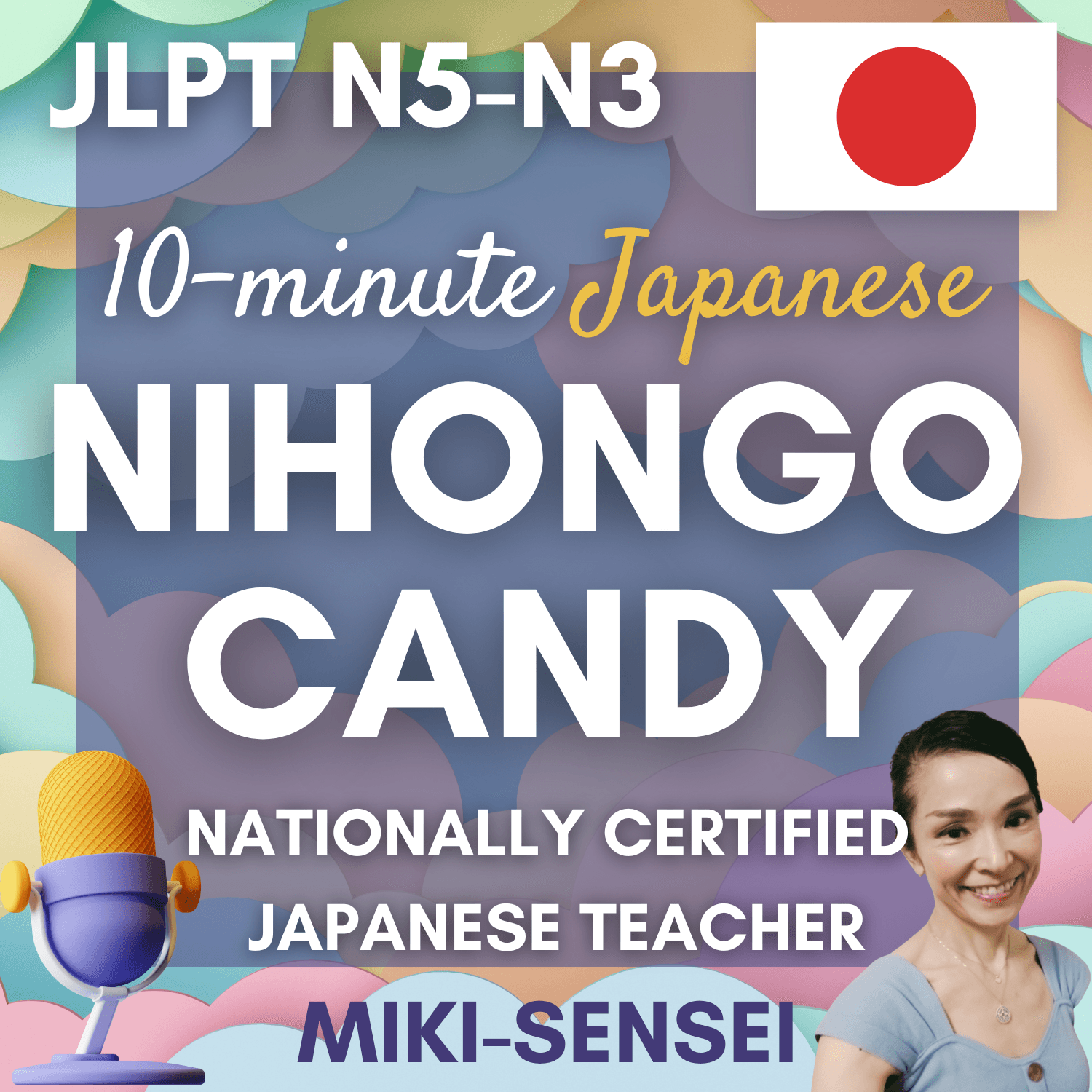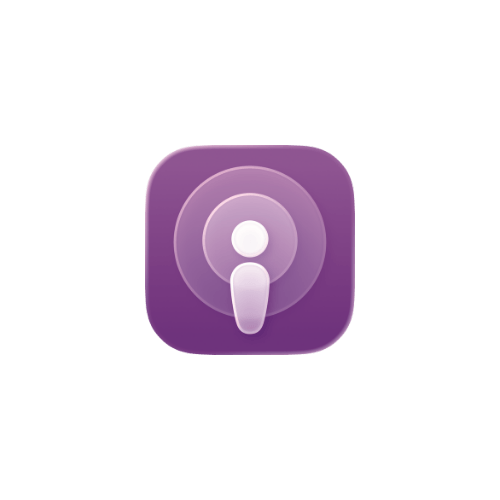
【 Podcast NIHONGO CANDY #114 】Japanese Slang しんどい \/ shindoi \/ tough, exhausting

Introduction
Today we're exploring a very common but interesting Japanese adjective: 「しんどい」(shindoi).
This word originally comes from the Kansai dialect but has spread throughout Japan and is now used naturally in everyday conversation nationwide. しんどい means "tough," "hard," "exhausting," or "difficult" both physically and mentally.
While you won't find しんどい in basic Japanese textbooks as fundamental vocabulary, understanding this word is essential for natural communication with Japanese people today.
By the end of this episode, you'll understand how to use しんどい confidently in various situations and know when it's appropriate to use instead of more formal alternatives.
Section 1: Basic Understanding of しんどい
The adjective しんどい originally comes from the Kansai region, which includes cities like Osaka, Kyoto, and Kobe. However, over the past few decades, しんどい has spread far beyond Kansai and is now commonly used throughout Japan in casual conversation.
しんどい expresses both physical and mental exhaustion or difficulty.
It's more casual and conversational than standard textbook words like 「大変」(taihen) or 「つらい」(tsurai). When Japanese people use しんどい, they're describing something that feels overwhelming, exhausting, or emotionally draining.
You'll encounter しんどい most often in three main contexts. First, when describing physical exhaustion or fatigue. Second, when expressing mental or emotional exhaustion. Third, when describing situations that are objectively difficult or harsh.
Section 2: Three Main Uses of しんどい
Let's explore the three most common ways to use しんどい with clear examples.
The first use is expressing physical exhaustion or fatigue. For example, 「今日は会議がたくさんあって、しんどかった」(kyoo wa kaigi ga takusan atte, shindokatta) means "I had many meetings today and it was exhausting."
You might also hear 「階段を上るのがしんどい」(kaidan o noboru no ga shindoi) meaning "Climbing stairs is hard/exhausting."
The second use is describing mental or emotional exhaustion. For example, 「会社の人間関係がしんどい」(kaisha no ningen kankei ga shindoi) meaning "Workplace relationships are exhausting/difficult."
You might also say 「子育てがしんどい時もあります」(kosodate ga shindoi toki mo arimasu) means "There are times when raising children feels overwhelming."
The third use is expressing that a situation or task feels overwhelming or too much to handle. For example, 「お客さんが減って、店を続けるのがしんどい」(okyaku-san ga hette, mise o tsuzukeru no ga shindoi) means "With fewer customers, it's difficult to keep the store running."
You might also hear 「今は不景気なので、ビジネスを始めるのはしんどいと思う」(ima wa fukeiki na no de, bijinesu o hajimeru no wa shindoi to omoo) meaning "Since the economy is bad now, I think starting a business would be tough."
Section 3: Comparing しんどい with Similar Words
Understanding how しんどい differs from similar adjectives will help you use it more naturally.
「大変」(taihen) describes situations or tasks that are difficult and large in scale. For example, 「今、大変なプロジェクトを担当しています」(ima, taihen na purojekuto o tantoo shite imasu) means "I'm currently in charge of a difficult project" and 「大きい家なので、掃除が大変です」(ookii ie na no de, sooji ga taihen desu) means "Since it's a big house, cleaning is a big job."
「つらい」(tsurai) specifically refers to deep emotional pain or suffering. For example, 「5年付き合った彼女と別れて、とてもつらい」(gonen tsukiatta kanojo to wakarete, totemo tsurai) means "I broke up with my girlfriend whom I dated for 5 years, and it's very painful," which is more serious than the general tiredness expressed by しんどい.
「きつい」(kitsui) describes harsh situations or conditions, while しんどい expresses subjective feelings like fatigue and mental stress. For example, 「これはきつい仕事だ」(kore wa kitsui shigoto da) means "This is tough work" and 「この坂道はきつい」(kono sakamichi wa kitsui) means "This slope is steep/hard."
Section 4: Appropriate Usage and Situations
Understanding when to use しんどい is important for natural communication.
しんどい is perfectly appropriate in casual conversations with friends, family, or close colleagues. You can use it when talking about your personal experiences, feelings, or challenges. For example, when catching up with a friend, you might say 「最近、仕事がしんどくて」(saikin, shigoto ga shindokute) meaning "Recently, work has been exhausting."
However, in very formal situations or business presentations, it's better to use more formal alternatives like 大変 or 難しい (muzukashii).
Section 5: Common Patterns and Expressions
Let's learn some common patterns and expressions using しんどい.
One common pattern is 「〜のがしんどい」meaning "doing [something] is hard/exhausting."
For example, 「毎朝早く起きるのがしんどい」(maiasa hayaku okiru no ga shindoi) means "Getting up early every morning is hard."
Another useful pattern is 「しんどくて〜できない」meaning "it's so exhausting that I can't [do something]."
For example, 「しんどくて、もう歩けない」(shindokute, moo arukenai) means "I'm so exhausted that I can't walk anymore."
You'll also hear 「ちょっとしんどい」(chotto shindoi) meaning "a bit tough/hard" when you want to express mild difficulty without sounding too dramatic.
In casual conversation, people often use しんどい with emphasis words like 「めっちゃしんどい」(meccha shindoi) meaning "really exhausting."
Section 6: Practical Examples
"Commuting on crowded rush-hour trains is really exhausting."
「ラッシュの電車で通勤するのが、すごくしんどいです。」
(Rasshu no densha de tsuu'kin suru no ga, sugoku shindoi desu.)
"Since my income decreased, buying a house now would be tough." 「
収入が下がったので、今家を買うのはしんどい。」
(Shuunyuu ga sagatta no de, ima ie o kau no wa shindoi.)
"Working during the day and going to college at night is very exhausting."
「昼働いて、夜大学に行くのは、とてもしんどいです。」
(Hiru hataraite, yoru daigaku ni iku no wa, totemo shindoi desu.)
Closing
めっちゃしんどい めっちゃ疲れた めっちゃおいしい などの、 めっちゃ も、関西弁から来た言葉です。意味や使い方は、 とても や すごく と同じです。では、次の3つの言葉 ちゃう あかん ドヤ顔 の意味がわかりますか?答えは、show notes を見てくださいね。
Meccha shindoi meccha tsukareta meccha oishii nado no, meccha mo, kansai-ben kara kita kotoba desu. Imi ya tsukai-kata wa, totemo ya sugoku to onaji desu. Dewa, tsugi no mittsu no kotoba chau akan doya-gao no imi ga wakarimasu ka? Kotae wa, show notes o mite kudasai ne.

Our Weekly Podcast
Practicality first! A weekly podcast that helps you master useful expressions and vocabulary you can start using in everyday conversations right away. Follow and listen, and you’ll find the dots connecting—your conversation skills will naturally improve.
BLOG CATEGORY
WELC Language Services - Copyright 2025 | TERMS of SERVICE | PRIVACY POLICY



